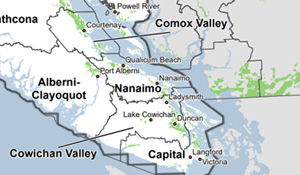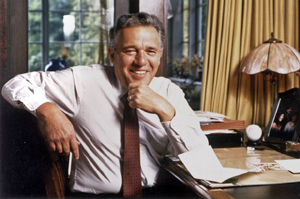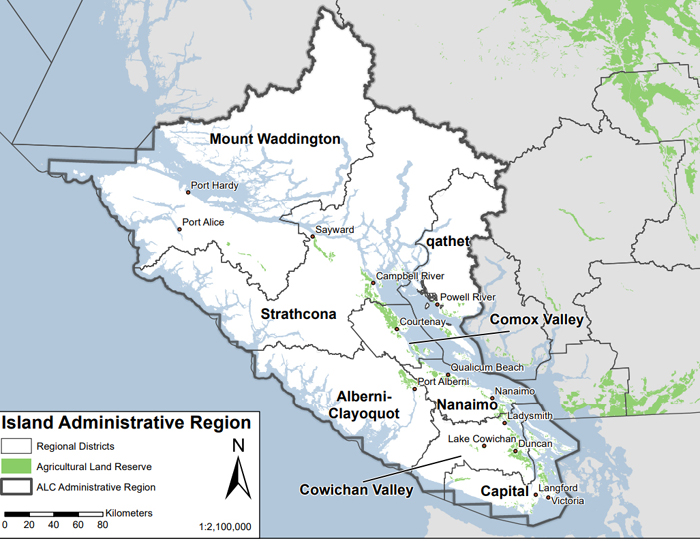Sunday April 30, 2023 | VICTORIA, BC
Analysis Mary P Brooke | Island Social Trends
BC Minister of Agriculture and Food, Pam Alexis, on April 18, 2023 issued a statement in honour of the 50th anniversary of the Agricultural Land Reserve (ALR). The reserve is something that British Columbia initiated under Premier Dave Bennett in the 1970s.
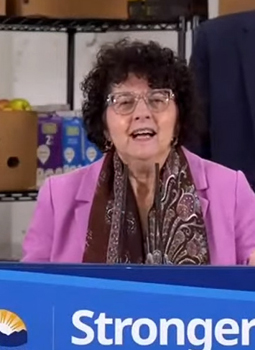
“Fifty years ago, British Columbians had the vision to protect our province’s food security by establishing the Agricultural Land Reserve and it has never been more important than it is today,” said Minister Alexis. “We depend on the ALR for the food on our tables and we depend on it to support farming families and businesses in communities all over our province.”
In recent years, former Premier John Horgan mentioned a few times as to the foresight and vision of the Dave Barrett, who turned the direction of the province to hopefully function in some kinder, gentler and smarter ways. Upon Barrett’s passing in 2018 Horgan said “BC has lost a giant.”
As Barrett had written in his own memoirs about bringing an NDP government to power: “Our government represented the first real break from the traditional power base of the province.”
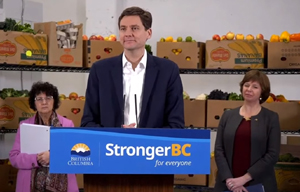
“The ALR was formed in 1973 by people who saw the need and the value of preserving farmland for food production. That need hasn’t changed,” says Alexis.
Adding agritech to the mix:
“Today’s farmers use the land differently than the generations before them did. They have technology at their fingertips and manage their farms from phones and fields. The importance of preserving farmland so future generations can enjoy fresh and local ingredients remains as true today as it was 50 years ago.”
“That’s why our government will continue to work with farmers to support food production and protect the valuable agricultural land in the ALR” said Alexis. Last month Premier David Eby announced $200 million from the 2022-2023 surplus to boost food sustainability issues across BC.
Agritech doesn’t require ALR land, but utilizes greenhouses and vertical structures for indoor growing. Some business executives recently discussed the advancements in a new grocery sector based on agritech.
Some new directions:
Over the past two years, the Ministry of Agriculture worked to revitalize the ALR and the Agricultural Land Commission with input from stakeholders, farmers, ranchers, and the general public.
New rules, effective December 31, 2021 allow property owners in the ALR increased housing flexibility, helping both farmers and non-farmers support their families and businesses in their communities.
Soil management:
Even with agritech coming into the mix, soil management is fundamental to growing food. Soil can be managed both in the ALR and pretty much anywhere that the initiative is desired. Naturally, it’s easier where nature cooperates with a good soil base to start out with.
The objective of soil management is to maintain soils in a physical, chemical and biological condition favourable for crop growth, while minimizing the risks to the environment from potential effects of erosion, says the Ministry of Agriculture and Food.
Soil capability differs from productivity, suitability and other interpretations of soil and climate information. In other words, you can start somewhere and improve upon it.
Buy BC, growing local:

“Farmers who work on the ALR provide healthy, local and sustainably grown food for British Columbians in every part of our province. The fact is if you’ve enjoyed B.C. fruits and vegetables, meat or dairy this year, chances are high it was produced in the ALR,” said Alexis in her April 18 anniversary remarks, as well as:
“The ALR is a key part of B.C.’s plan for a sustainable, local food system. On the ALR’s golden anniversary, I join British Columbians in celebrating the healthy, nutritious food the ALR has provided for plates all over our province and encourage all to ‘Buy BC’ to help build a strong and resilient food system in British Columbia. Happy 50th anniversary to the ALR!”
Vancouver Island challenge:
Being situated on an island makes Vancouver Islanders dependent on the transport of food by ferry and airplanes, and then further of course by trucks.
Local food production fills about three percent of what islanders would need in the event of a major emergency in which transportation routes would be cut off.
In this spring growing season, islanders may want to think about starting or expanding their own food-growing capacity. Even growing veggies in pots on a patio or in a small backyard garden shows a commitment to zero-emissions transportation of food, and offers tasty nutritious food at your fingertips.
A tax credit to people who develop food-growing capacity in and around their own homes and communities might be another way of the future.
===== RELATED:
- Island Social Trends FOOD SECURITY SECTION
- Food security program toured by Education & Agriculture Ministers (April 25, 2023)
- Feeding Futures funding expands school food programs in BC (April 5, 2023)
- Transitional process to an affordable future food supply (March 29, 2023)
- What people are saying about food sustainability (March 29, 2023)
- Sooke community shows up for food sustainability (March 28, 2023)
- Premier Eby announces $200 million for BC food security initiatives (March 7, 2023)
- Growing your own food in inflationary times (July 3, 2022)


